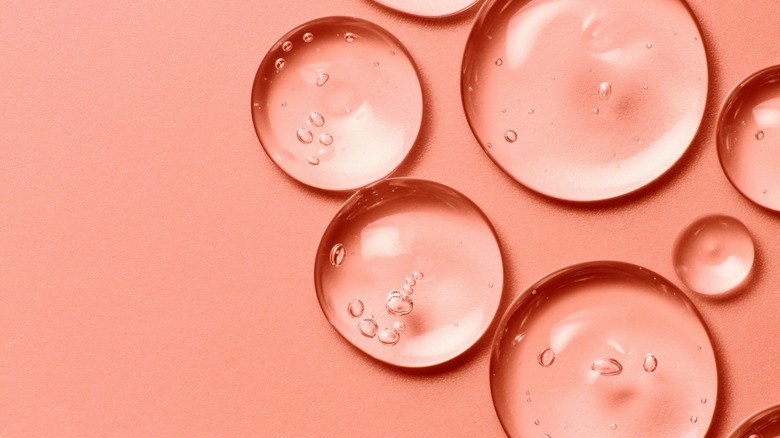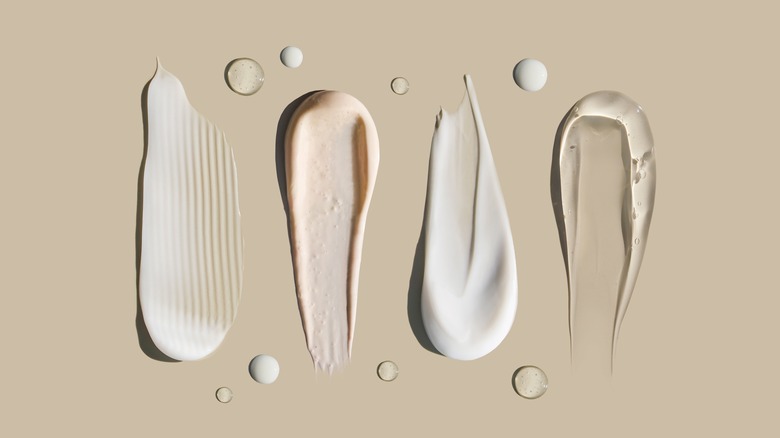What Can Polybutene Do For Your Skin?
In the vast, seemingly endless world of skincare, ingredient lists that are miles long and hard to read only add to the confusion around what we're putting on our skin. A recent shift toward all-natural beauty products has caused many of us to cast a skeptical gaze at the more "chemical-like" ingredients in our product formulas. However, the jury's still out on whether all-natural ingredients are guaranteed to be better for the skin.
Moreover, while it's certainly true that some synthetic materials can be toxic, just because something is artificial doesn't mean it's inherently harmful. In fact, many of the impossible-to-pronounce ingredients in your skincare don't directly affect the skin at all. These polymers, binding agents, thickeners, and other similar components are there to affect the product formulas themselves.
Polybutene is one such synthetic ingredient whose name might give clean beauty lovers pause. According to the National Institute of Health, polybutene is found in hundreds of common beauty products. Luckily, the NIH also indicates that this is nothing to worry about.
What is polybutene?
A polybutene safety assessment published in the Journal of the American College of Toxicology defines this common ingredient as an isotactic polymer of isobutene and n-butene. Polymers are substances made of macro (or large) molecules, and isotactic means that the polymer's molecular structure uniformly repeats itself. Other names for polybutene include butene, polybutylene, and butene polymer.
The JACT report used skin irritation, oral toxicity, and pulmonary toxicity tests on animals and found polybutene to cause mild to no irritation when applied to the skin and eyes, ingested, or inhaled. The assessment cites limited human clinical data, but from what was available, polybutene seemed to cause little to no irritation during skin sensitivity, photosensitization, and phototoxicity tests.
Polybutene's limited effects on the skin are largely due to its macromolecule makeup, which board-certified dermatologist Dr. Carmen Castilla told Byrdie makes it impossible for the synthetic polymer to penetrate the skin. That's a lot of scientific jargon to say, cosmetically speaking, polybutene is harmless. But if it can't penetrate or notably affect the skin, why is it found in so many beauty products?
Polybutene's role in your beauty regimen
According to the NIH, polybutene is primarily used as a plasticizer and viscosity agent in cosmetics. Plasticizers, also known as phthalates, act as stabilizers, maintaining the cohesion of one formula's many ingredients. This prevents the product from breaking down and ensures all the individual components work together the way they should. A "viscosity agent" is another term for a thickening agent, which maintains a formula's thickness and shine so that you don't have to worry about your products turning messy, cloudy, and runny.
Additionally, Castilla explained to Byrdie that polybutene can serve as a lipid-thickening emollient when used in moisturizers, helping to soften and smooth the skin. Kemat Belgium, a global polybutene supplier, states that the sticky liquid can be heated, applied to the skin, and stripped off quickly to remove unwanted hair as an epilating agent.
Overall, polybutene is a colorless, odorless, non-toxic ingredient that has a far greater effect on the consistency and feel of your skincare products than on your skin itself. Despite its straight-from-the-lab name and synthetic composition, this common ingredient is perfectly safe and shouldn't be a reason to purge your favorite products. There's plenty of harmful skin care advice on the internet to avoid, but using products with polybutene shouldn't be one of them.


